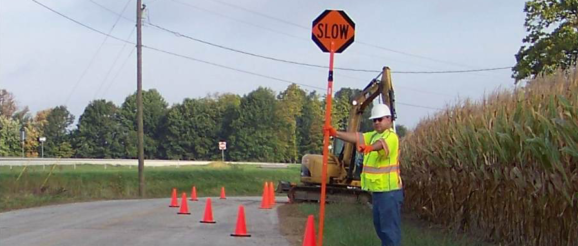| AsphaltPro Magazine | ARTBA Says Ending Proprietary Products Ban in Traffic Control Devices Manual Would Spark Innovation & Help Improve Road Safety

Ending a ban on patented or proprietary products in the updated Manual on Uniform Traffic Control Devices (MUTCD) would give states flexibility to allow for expanded use of innovative safety devices designed to reduce roadway injuries and fatalities, the American Road & Transportation Builders Association (ARTBA) says.
In May 14 comments ARTBA told the U.S. Department of Transportation (U.S. DOT) that its proposed revisions to the MUTCD appear “to prioritize internal bureaucratic procedures of uniformity and standardization over the external outcomes of safety, protecting public health and improved system performance.”
ARTBA formally petitioned U.S. DOT in March 2018 to repeal the 1916-era federal proprietary procurement rule (23 CFR 635.411). After careful review and receiving feedback from industry firms and business groups, the agency withdrew the rule in September 2019. That repeal, however, has not been applied to the MUTCD.
“It is ironic that many of the rationales cited for the proposed revisions to the MUTCD are the same objectives the agency said would be achieved in 2019 when it lifted its ban on the use of federal funds for the products and process with intellectual property right protections,” ARTBA said. “Yet the proposal explicitly contradicts that 2019 action by imposing more explicit barriers to innovation from patented and proprietary products.”
ARTBA said Federal Highway Administration’s (FHWA) resistance to patented and proprietary products is inconsistent with long-standing practices commonly found in the executive branch. It cited the U.S. Department of Defense and NASA as examples of agencies that have learned to protect the public interest while capitalizing on innovations and technologic advances not in the public domain. FHWA cannot maximize the use of innovation and technology to achieve the MUTCD’s objectives without following suit, ARTBA said.
The association also stressed the importance giving states the flexibility to address their unique needs and pursue the highest level of safety and system performance.
ARTBA outlined examples of products and ideas from industry firms that could provide needed safety benefits but cannot be used due to the broad ban. They include wrong-way warning devices, clearer directional signage, and flashing beacons for pedestrian crosswalks.
In addition to the suggested improvements for the MUTCD related to patents, ARTBA called on U.S. DOT to improve proposed regulatory language that would encourage the use of physical barriers between roadway workers and motorists.
Established in 1902, the Washington, D.C.-based ARTBA brings together all facets of the transportation construction industry to responsibly advocate for infrastructure investment and policy that meet the nation’s need for safe and efficient travel.
